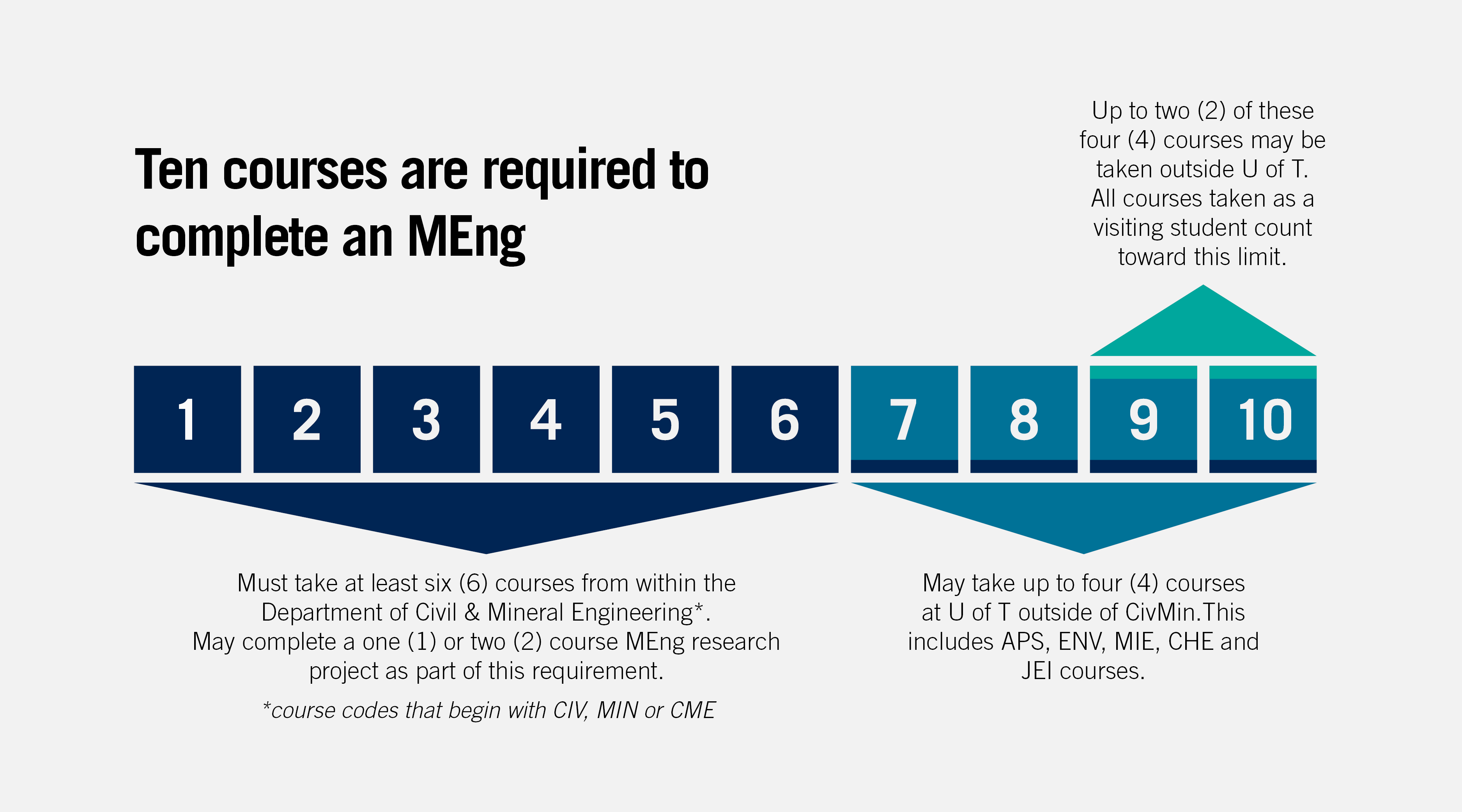
The Master of Engineering (MEng) provides continuing and advanced education for recent graduates and engineers in professional practice
CivMin’s MEng program in civil engineering provides graduate students with the tools to succeed in professional practice. The program consists of coursework and an optional project conducted under the supervision of a CivMin faculty member. Students have the option to complete the MEng program on a full-time, extended full-time or part-time basis.
Tailor your degree to your passion
MEng students must successfully complete: 5.0 FCE’s (full credit equivalents) (10 half-credit) graduate courses (500- and 1000–level courses). From these 10 half-credit courses:
- 6 must be in the CivMin department (CIV, MIN, or CME course codes). APS1001 – Project Management, APS 1410 – Waterpower Essentials or APS 1411- Renewal of Waterpower Facilities may be counted towards this requirement.
- 1 or 2 of these courses can be replaced with an MEng Project
- 4 may be taken outside the CivMin department, and may include APS and TEP courses, courses from other engineering departments, or other faculties
Within the first session of study, an MEng student may request transfer credit for up to two previously completed graduate level courses (grade of at least B+) that were not used for credit towards a degree.

Technical Emphases
MEng students can customize their program by choosing an optional area of emphasis, which will appear on their transcript, acknowledging the depth and focus of the student’s studies.

CivMin offers these core emphases, which appear on your transcript.

MEng students in CivMin are also eligible to pursue these emphases offered by the Faculty of Applied Science and Engineering:
Program Completion Options
Students choose whether they want to complete the MEng program on a full-time, extended full-time or part-time basis at time of application. Please note that the program length can impact the length of an international student’s work visa after graduation.
Full-time
- Program Length: 3 sessions (12 months)
- Typical course load: 4-5 courses in Fall, 4-5 courses in Winter, 1-3 courses in Summer
- Program Time Limit: 9 sessions (3 years)
Extended Full-time
- Program Length: 6 sessions (24 months)
- Typical course load: 2-3 courses per session
- Program Time Limit: 9 sessions (3 years)
Program Proposal
All MEng students are required to submit a MEng Proposed Program of Study and Project Proposal to meng.civmin@utoronto.ca by the end of their first session of study. This form outlines your plan to meet program requirements, and specifies your intent to complete a optional departmental emphasis and/or an M.Eng project.
If you intend to request transfer credit, include this information on your proposal form and submit it along with an SGS Transfer Credit Request Form.
If you make changes to your program, you may submit a new MEng Proposed Program of Study and Project Proposal.
MEng to MASc Transfer
Students who are enrolled in the MEng degree may be eligible to transfer to the MASc program in CivMin.
To transfer, students must first find a CivMin’s faculty member who will agree to be their supervisor.